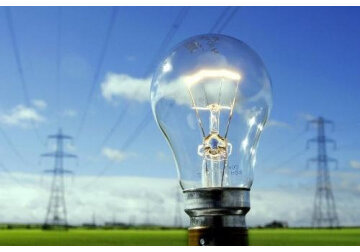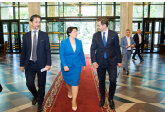
The EU will implement a 10 million euros project in Moldova to improve energy saving and energy efficiency.
According to estimates, residents could save 65 million lei annually on electricity alone. UNDP Moldova reported this, noting that the possibility of such economy is indicated by a social experiment to reduce energy costs in households, carried out earlier in partnership with the electricity supplier Premier Energy. Representatives of UNDP Moldova point out that in a situation where tariffs are constantly rising, the first thing that comes to mind when asked to help the population during the energy crisis is the government paying subsidies and compensations to everyone, or at least to those who live in energy poverty. But the government has no money of its own, except that which comes in the form of taxes and fees from taxpayers. Accordingly, before spending it, we should try no-cost methods. Since the cheapest energy is the one that is not consumed, the program "Addressing the Impact of the Energy Crisis in Moldova" decided to conduct a social experiment to reduce energy costs in households. The experiment was conducted in partnership with Premier Energy in 2019 and during the COVID-19 pandemic in 2020, on a reduced scale. In February 2022, the experiment was expanded to a national level: about 300,000 consumers with higher consumption received regular or email letters from their energy provider suggesting simple actions to take that should result in energy savings. The printing and delivery of the letters was funded by an EU program. "We started by calculating an average consumption of 140 kWh per month per household. Consumers received statistics comparing their data to those of more energy-efficient consumers in their neighborhood, as well as tips and solutions to save energy. They were also encouraged to pay their bills online as a pandemic safety measure and to save time. In addition, the monthly invoice from Premier Energy was improved, with more useful information to reduce consumption," said UNDP Moldova policy specialist Dumitru Vasilescu. According to him, the results of this behavioral program were almost the same as those of similar experiments conducted by the U.S. company Opower. One of the members of the company's advisory board is the business writer Robert Cialdini, author of "The Psychology of Persuasion," and the Opower experiment was a continuation of an experiment conducted by the writer several decades earlier. By identifying simple actions that lead to reduced energy consumption, he formulated 4 ideas concerning: environmental protection (protect the environment by conserving energy); social responsibility (promote energy conservation for future generations); personal interest (save money by conserving energy); descriptive norms (make sure your neighbors use less energy). At the end of the experiment, it was found that 3 of the 4 groups of consumers spent even more energy over the next period, except for those who were encouraged to follow the example of neighbors with lower consumption. The experiment has been conducted more than once, and the one in Moldova confirms: a neighbor is still the best motivation. "Studies conducted in collaboration with the EU and UNDP Moldova prove that household consumers who received letters on electricity consumption levels were able to achieve an average reduction in energy consumption of 1.33%, i.e. 2.64 kWh per month. If such an energy saving system covered all domestic consumers in the country for 1 year, more than 65 million lei could be saved on the total annual electricity bill. We are glad that we can contribute to the energy efficiency of our customers," stressed Premier Energy Moldova Country Manager Jose Luis Gomez Pascual. As noted, in the United States, households that receive such letters reduce their consumption by 1.4-3.3% and on average by 2% (0.62 kWh) per day. In Moldova, the reduction was 1.33% in rural areas and small towns and 3.8% in Chisinau municipality. A recent UNDP analysis showed that 60% of the population of Moldova lives in energy poverty, spending more than 10% of their income on energy bills. The program "Addressing the Impact of the Energy Crisis in Moldova" will help accelerate the transition to green energy by promoting energy efficiency and renewable energy, as outlined in the EU Green Pact. With a 10 million euros budget allocated by the European Union, the program will launch a campaign to replace old household appliances with new and energy efficient ones, finance the installation of photovoltaic panels in households and several hospitals, and replace centralized heating systems in many apartment buildings with much more efficient horizontal distribution systems. In addition, the program supports the transposition of the Third EU Energy Package into both primary and secondary legislation, as well as the transposition of several directives and provisions of the "Clean Energy for All Europeans" package on energy efficiency in buildings, renewable energy sources, energy efficiency, good governance and design of the electricity market. // 26.07.2022 - InfoMarket.







